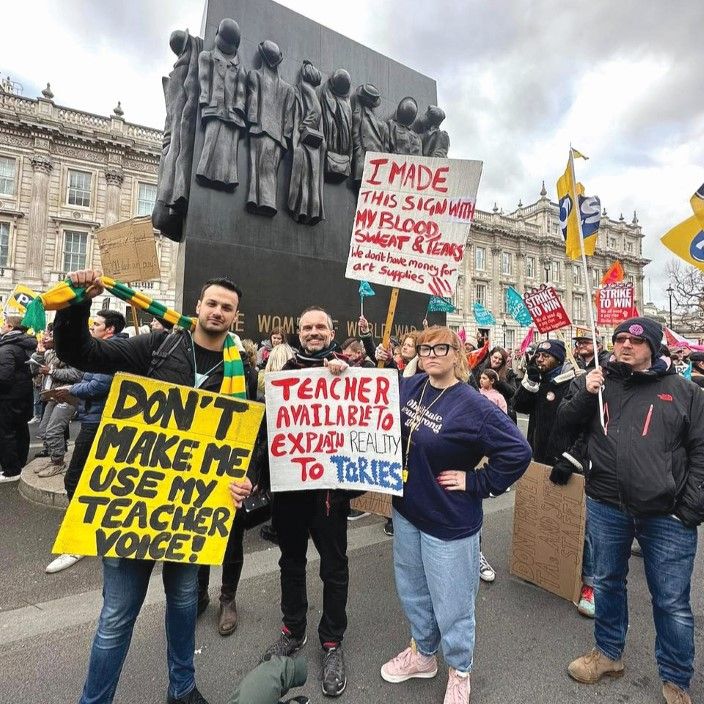
On 1 February 2023, up to 300,000 teachers in England and Wales took strike action. Members of the National Education Union (NEU) are demanding a 12 per cent pay rise that factors in inflation and that is fully funded by the government (not drawn on existing school budgets).
The NEU is the largest education union in the UK and the 1 February strike is the first of seven days of industrial action taking place ending on 16 March. The NEU ballot closed on 16 January and was the largest vote for strike action across any sector since anti-union laws were imposed in 2016. The laws demand that all ballots meet a 50 percent-plus threshold. The ballot by fellow teacher’s union NASUWT narrowly failed to meet the threshold.
NEU joint general secretaries Kevin Courtney and Dr Mary Bousted met with Minister for Education Gillian Keegan in closed discussions in the lead up to the strike. On the picket line in south London, Dr Bousted said “I think that [ministers] believed that we wouldn’t make the threshold for action. I think if it comes to ministers against teachers, teachers will win.”
“Today we put the education secretary on notice. She has until our next strike day for Engand, February 28, to change her stance.”
The strike was part of a bigger “mega” strike with up to 500,000 workers taking to the streets. Teachers joined train and bus drivers, civil servants, university staff and security personnel who are all impacted by the cost of living and by deteriorating work conditions. In London alone, 40,000 march on Downing Street. More than half of state-funded schools in England were partially or fully closed due to the strike while nearly all school in Wales were closed.
School support staff joined the strike in Wales while teachers took action in Aberdeen and Clackmannanshire in Scotland. Members of the Educational Institute of Scotland (EIS) will continue rolling strike action and walk out each day in two local authority areas until 6 February. In Northern Ireland, members from NASUWT – The Teachers’ Union will take a half day strike on 21 February over the failure to offer teachers a fair and decent pay award. NASUWT is also calling for a fully funded 12 per cent pay award for 2022/2023.
“At a time when teachers are facing the biggest squeeze on their finances in a generation, offering what amounts to a further real-terms pay cut is simply not good enough. The Department of Education and employers must bring forward a substantially improved pay offer if they want to see an end to this dispute.” Dr Patrick Roach, NASUWT General Secretary
IEUA NSW/ACT stands with teachers and support staff in the UK and around the world as they continue to advocate for a better deal. The teaching profession is not just in crisis here in Australia but in many countries due to the rising cost of living and crippling teacher shortages driven by low pay and poor working conditions. Our struggle is their struggle.
Around the Globe brings you international news about injustices and workers’ rights. If injustice exists anywhere, it exists everywhere.







































































































































